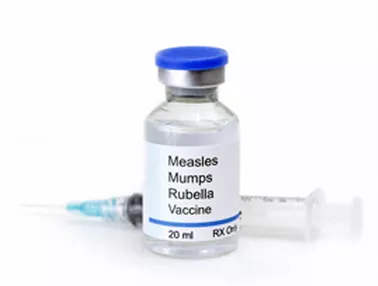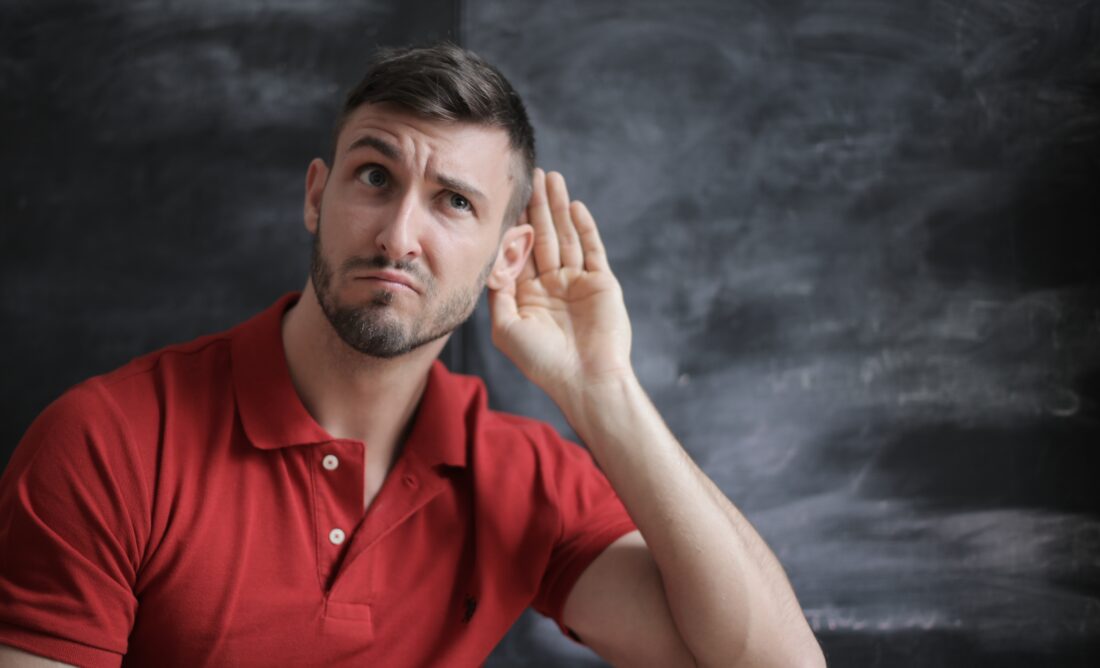It only lasts for a couple of weeks, but the effects of having a case of the mumps can be long-lasting – especially for your hearing health. The viral infection is known for painful, swollen glands in the throat and can also permanently damage your hearing.

What are mumps?
Mumps and hearing loss
The mumps, which got its name from an Old English word meaning grimace, is a viral infection which spreads easily from person to person through infected saliva, typically when a person coughs or sneezes. Besides hearing loss, the mumps can cause inflammation and swelling in other parts of the body including the testicles, pancreas, ovaries and breasts, brain (encephalitis), and membranes and fluid around the brain and spinal cord (meningitis).
Symptoms include:
- Swollen, painful salivary glands on one or both sides of the face
- Pain while chewing or swallowing
- Fever
- Headache
- Muscle aches
- Weakness and fatigue
- Loss of appetite
The mumps is known as a childhood disease so parents are advised to immunize their children against the disease at 12-15 months, with a booster at 4-6 years of age. The mumps vaccine is commonly administered together with measles and rubella and is known as the MMR vaccine. Medical professionals believe this vaccine provides 80 percent long-term immunity against the diseases, yet outbreaks still occur – mostly due to lack of vaccination.
Adults born before 1957 who haven’t yet contracted the mumps should consult their family doctor about receiving an immunization, especially if they work in a high-risk environment, such as a hospital or school.
How do the mumps cause hearing loss?
The mumps virus damages the cochlea, located in the inner ear. This snail-shaped structure houses stereocilia, otherwise known as hair cells, which translate sound vibrations into nerve impulses for the brain to interpret as sound. These hair cells do not regenerate, so once they are damaged or destroyed, hearing is permanently affected.
Those who lose hearing as a result of having the mumps most likely have sensorineural hearing loss. Measles and rubella can also cause this type of hearing loss. Although normal hearing cannot be restored, there are several options which can aid hearing and communication:
- Hearing aids may be beneficial for those who suffer mild to severe hearing loss. A hearing healthcare professional can help you decide which hearing aid manufacturer and model is best for your budget and your lifestyle.
- Cochlear implants are an option for those with profound hearing loss and consist of an internal and external component. The internal component is surgically implanted under the skin behind the ear and connects to the external component with a magnetic disk. These medical devices bypass the damaged cochlea and directly stimulate the auditory nerve.
- American Sign Language (ASL) is a rich, vibrant language with its own syntax and grammar which uses hand gestures, body language and facial expressions.
- Cued speech is a type of sign language which uses hand movements combined with mouth shapes.
Fortunately, mumps-related hearing loss is rare. According to the Center for Disease Control (CDC), less than 1 percent of all individuals infected with mumps experience deafness. Your best defense against the disease is immunization. Talk to your pediatrician about vaccination schedules for your children as well as adult members of your family who have not yet had the mumps.
In the rare event you or a member of your family experience hearing loss after a case of the mumps, schedule an appointment with a hearing healthcare professional as soon as possible. Ask your family physician for a referral or search for a qualified hearing professional in your community from our Find a Professional section.
Copyright 2016. Reprinted with permission from Healthy Hearing. Please visit our site for the original article: http://www.healthyhearing.com/report/52659-Mumps-and-hearing-loss
www.healthyhearing.com


Recent Comments